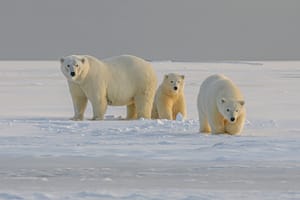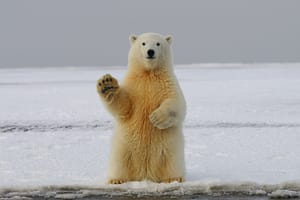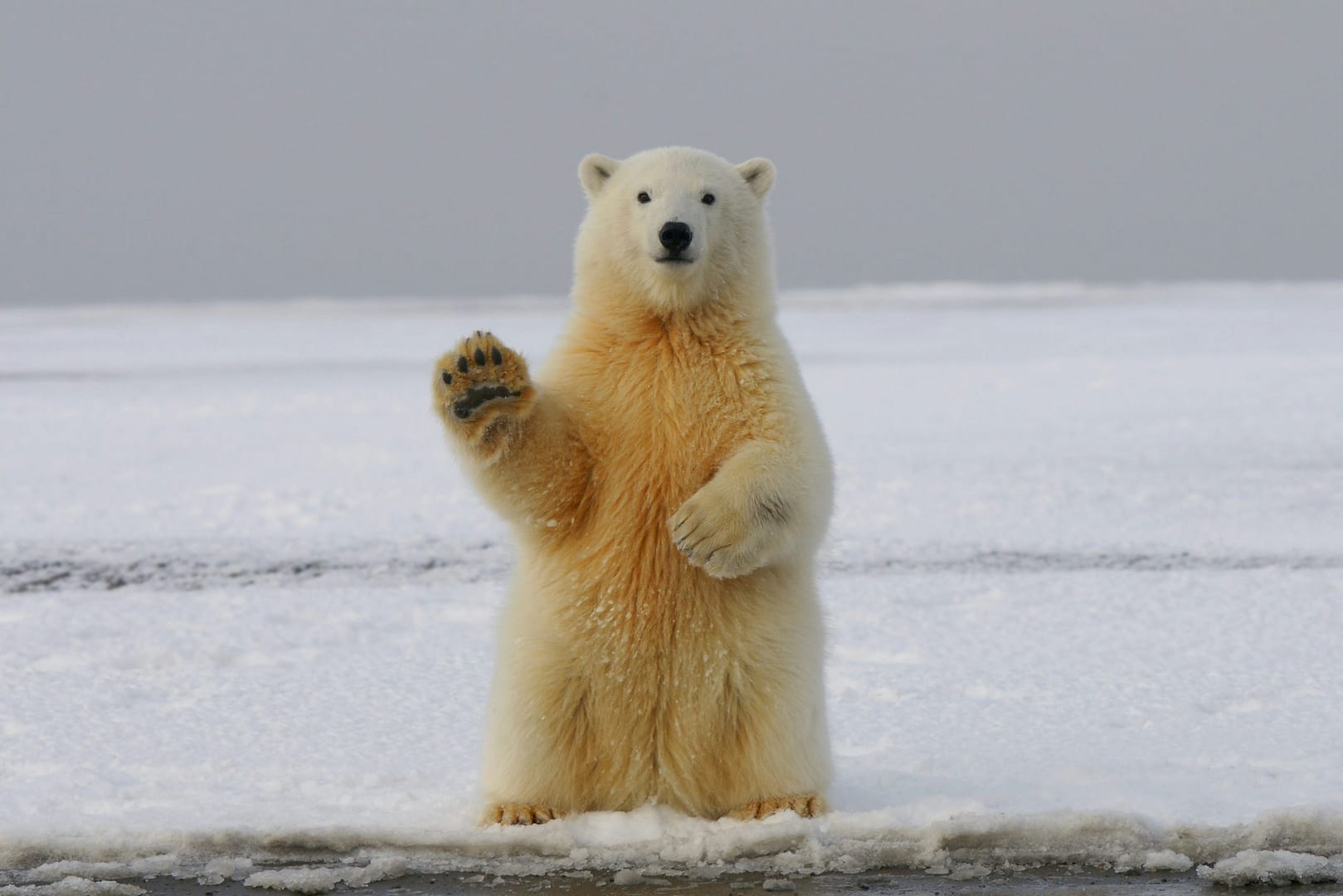

Scientists have discovered that as the Arctic sea ice melts, some polar bears are struggling to survive because they can’t change their diet to find food on land.
Usually, these bears hunt ringed seals from ice floes in the sea. But with the ice melting due to global warming, they’re forced to stay on land more, trying to eat things like bird’s eggs, berries, and grass. This diet doesn’t work for them, and they start to lose weight quickly, which can lead to death.
Polar bears have become a symbol for the dangers of climate change in the Arctic. Although hunting once caused their numbers to drop, now, rising global temperatures are the main threat because the bears need the ice to catch their food.
The study, done in Western Manitoba, showed that over 36 years, the time without ice has grown by three weeks. Researchers watched 20 polar bears over three summers, tracking their movements and diet with GPS cameras. They found that despite trying different ways to survive, like resting or looking for food on land, 19 out of 20 bears lost weight, some by as much as 11%.
Dr. Anthony Pagano, who led the study, said, “No matter what they tried, it didn’t really help them stay on land longer.”
Charles Robbins, another researcher, noted, “Polar bears aren’t just grizzly bears in white coats. They’re very different.”
Even when some bears tried to find food in the water, they were too tired to eat much. One young bear found a dead whale but was so exhausted she just rested on it more than eating.
Polar bears are amazing creatures. About 26,000 of them live mostly in Canada, but they’re also found in the US, Russia, Greenland, and Norway. They’re at risk of extinction because of climate change. They’re huge, with males reaching up to 3m long and weighing nearly 600kg, and they can eat 45kg of blubber in one go. They have an incredible sense of smell and are excellent swimmers, thanks to their slightly webbed paws.
Interestingly, one bear in the study actually gained 32kg because it found a carcass while resting.
This study shows how climate change poses a real challenge for polar bears, raising questions about their ability to adapt. But the effects of climate change might vary by location. Jon Aars from the Norwegian Polar Institute said, “Polar bears might disappear from areas losing sea ice, but it’s hard to say exactly when and where. Some places might still be good for bears for decades to come.” He added that the study area might become very tough for bears soon if the ice keeps melting as expected.

